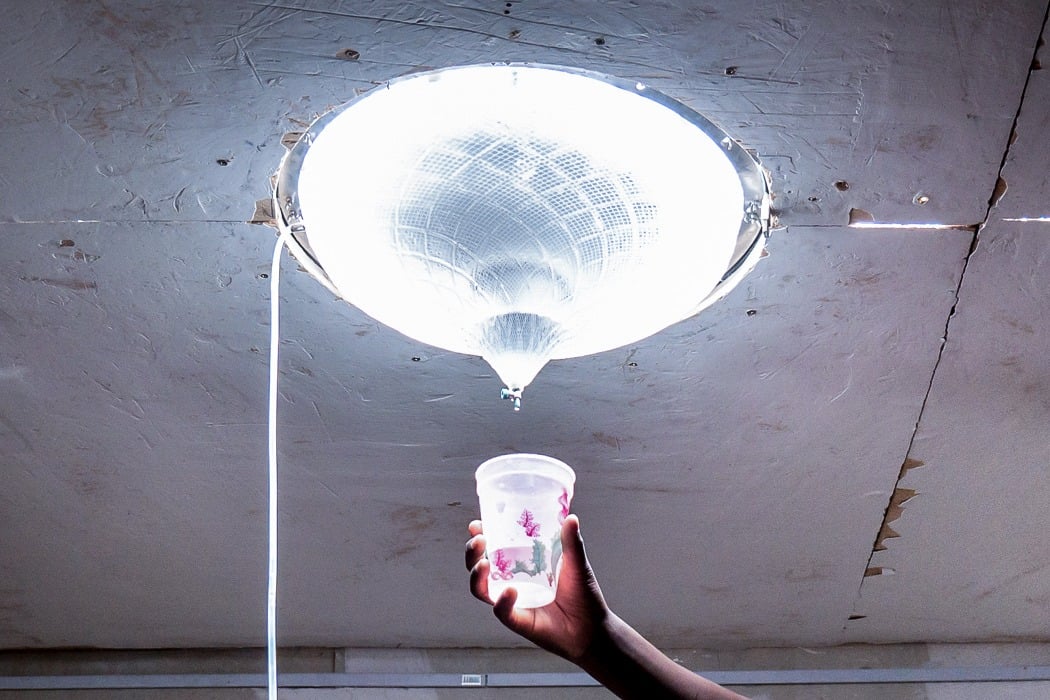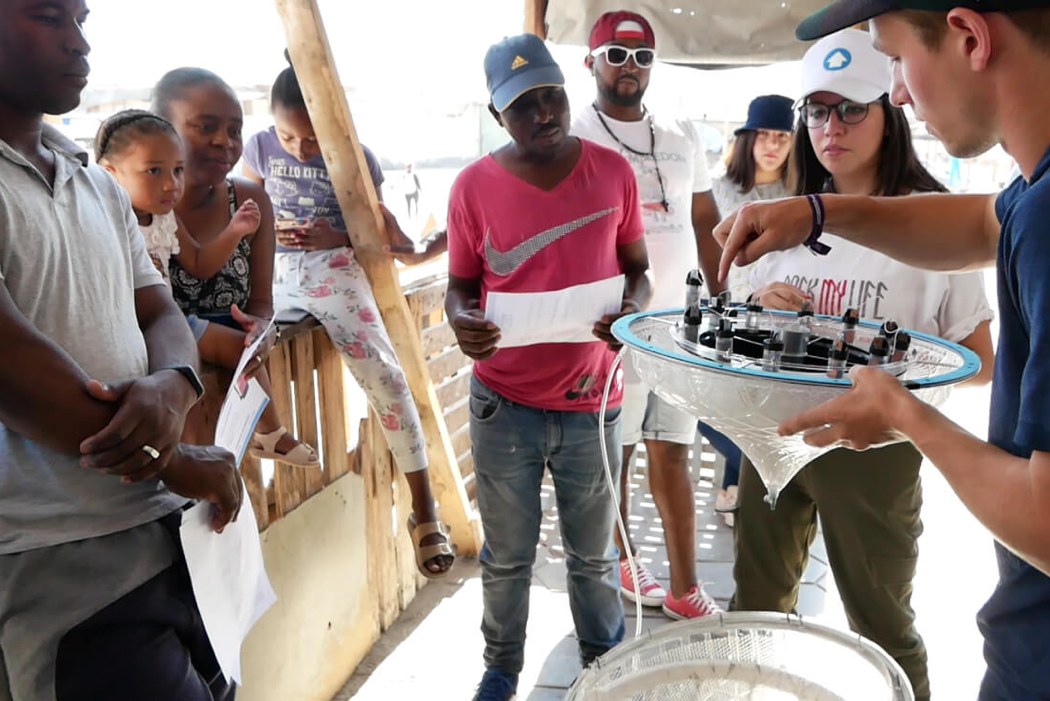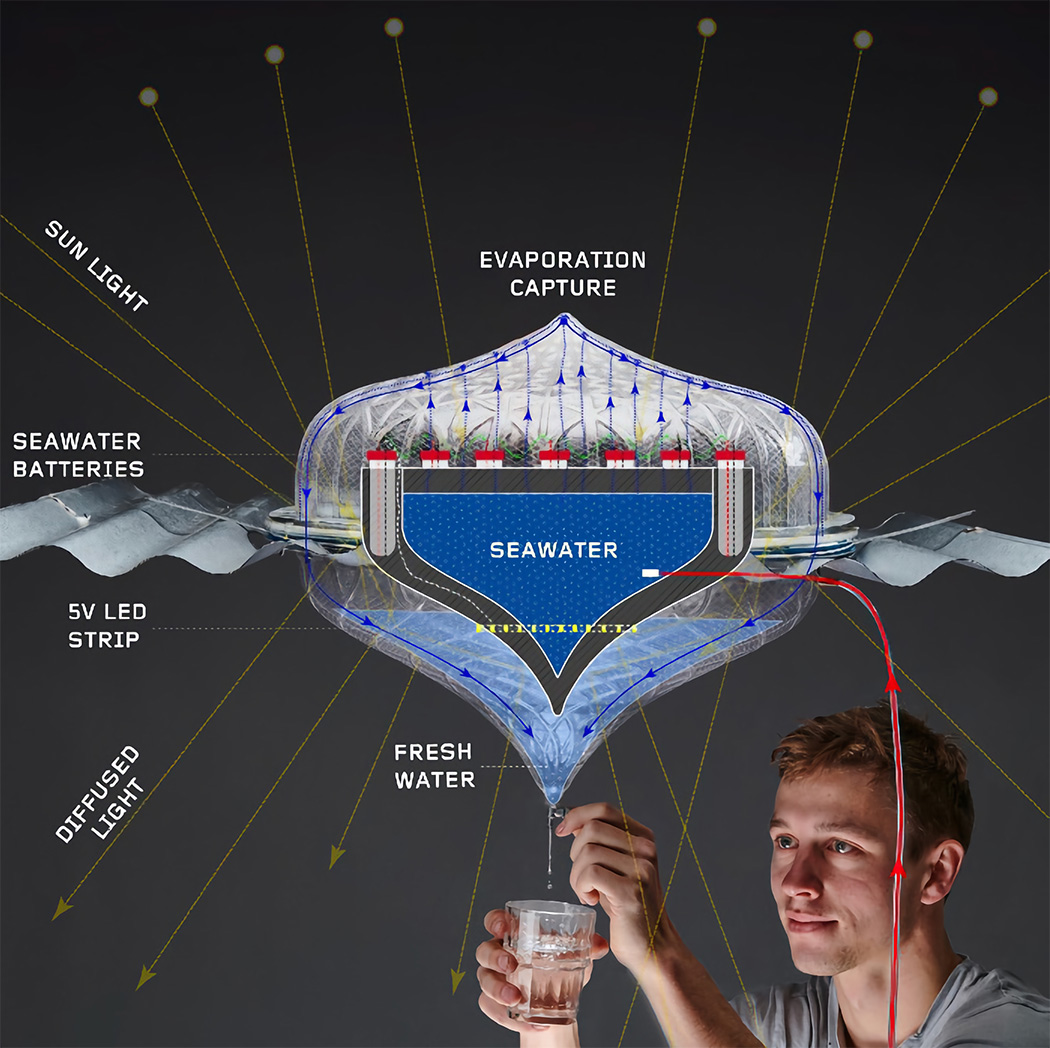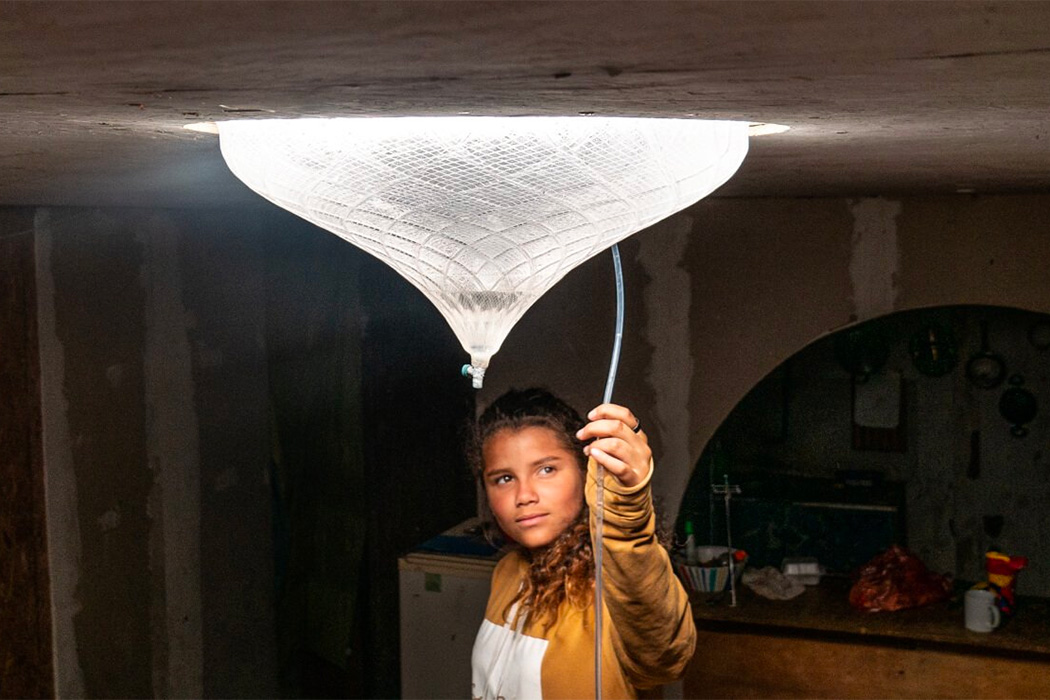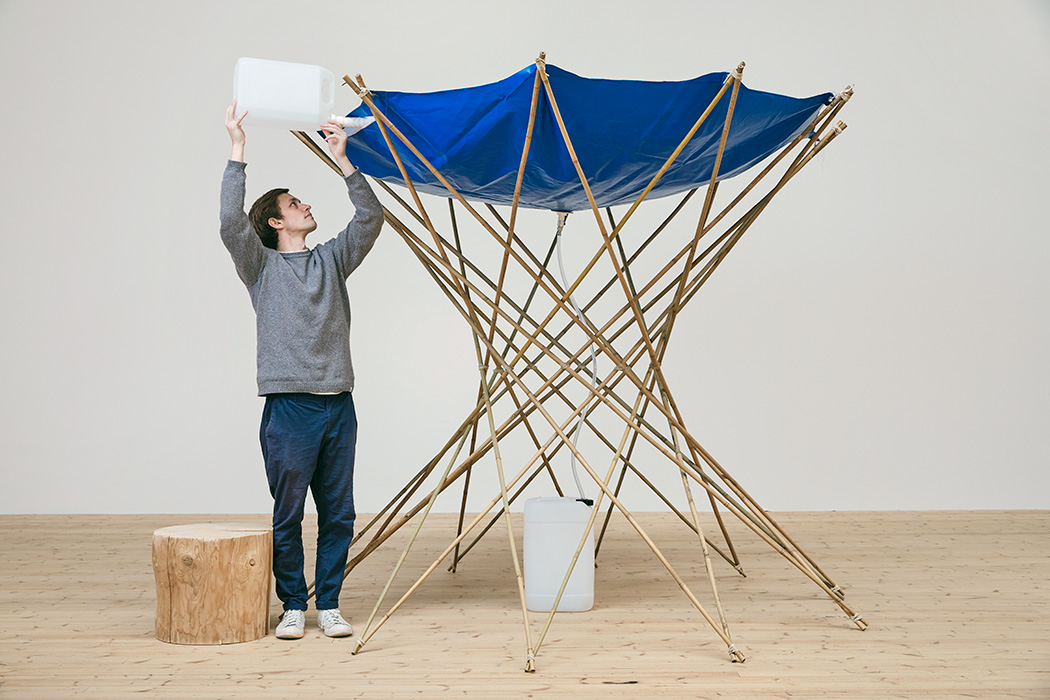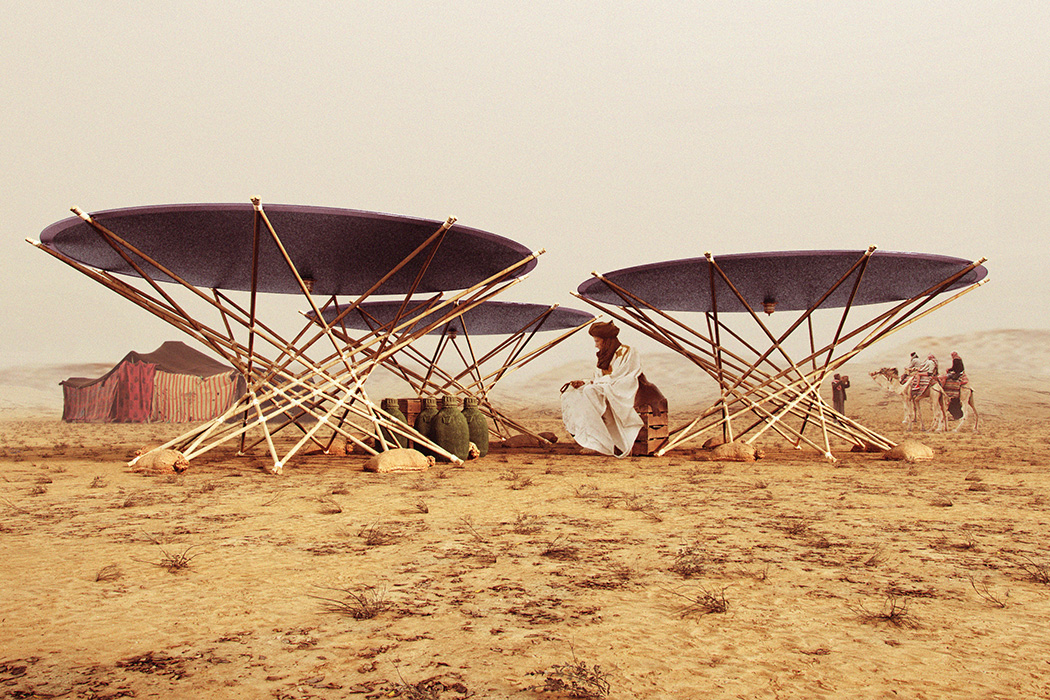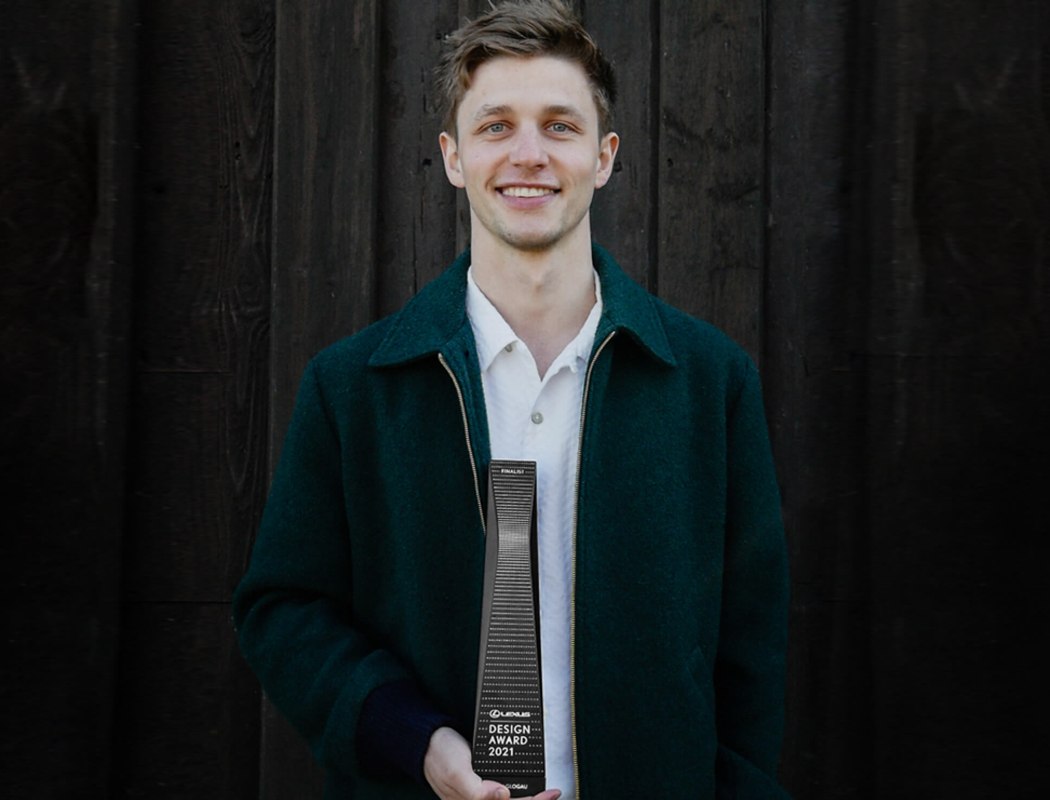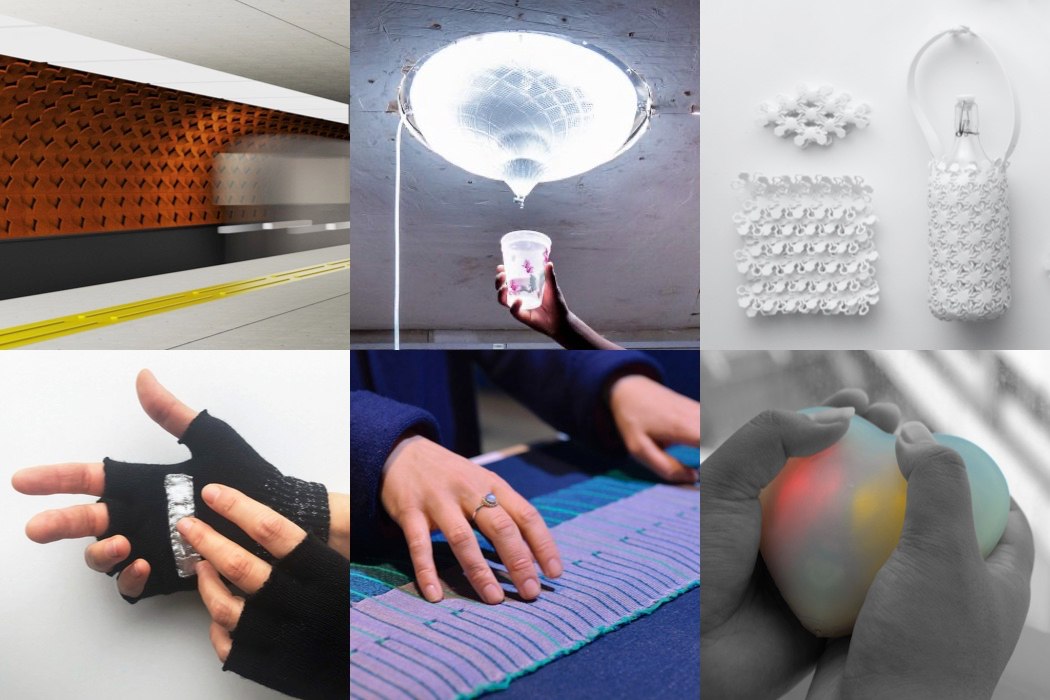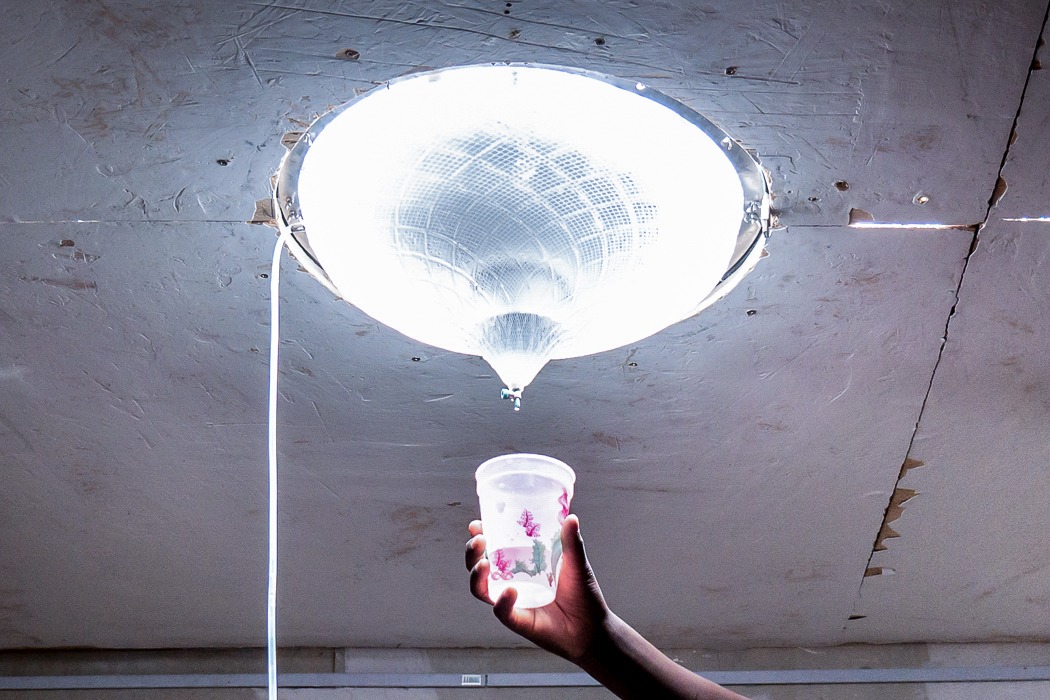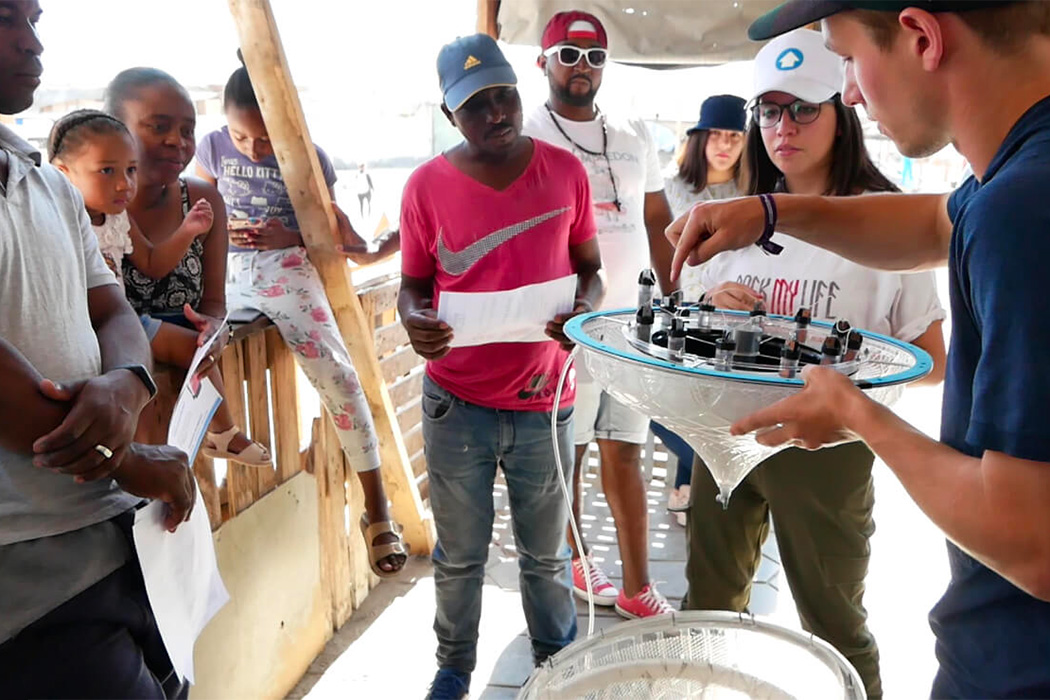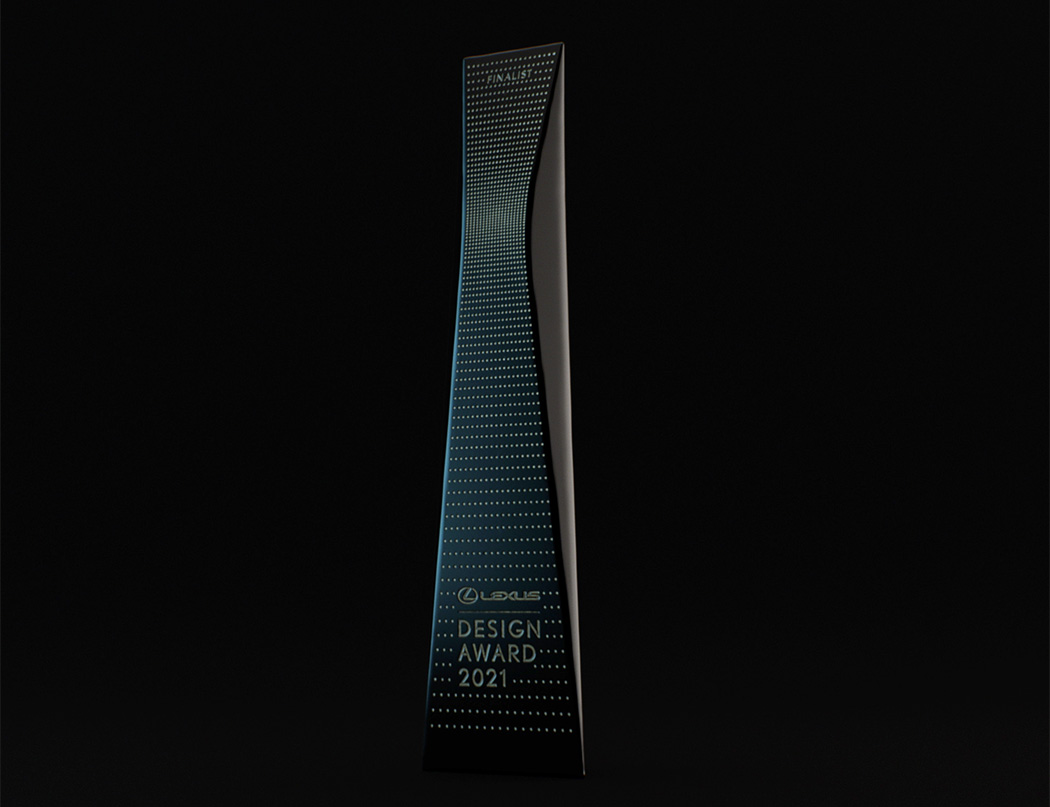Earlier today, Lexus Design Awards announced their winner for the 2021 edition of their award program on April 27th. The winning project ‘Portable Solar Distiller’ by Henry Glogau was declared the Grand Prix Winner, surpassing 2,079 other design entries from 66 countries. Chosen as the project that best encompasses “Design for a Better Tomorrow”, the Portable Solar Distiller provides clean drinking water by filtering polluted water or overly saline sea water using sunlight. Merging local resource production with community architecture, this low-
tech solution also serves as a shaded gathering place.
The ‘Portable Solar Distiller’ was selected as the Grand Prix Winner from a roster of 6 finalists. Initially named the Solar Desalination Skylight, the design went through the mentorship phase under the expertise of Joe Doucet, Sabine Marcelis, Mariam Kamara, and Sputniko! These four world-class creators guided the finalists in surmounting challenges, helping refine and define the project and bring it to a fully refined stage. The 6 finalists were judged by an elite jury panel comprising Paola Antonelli, Dong Gong, Greg Lynn, and Simon Humphries, the elite panels who judged the entries. After selecting the Grand Prix winner, Judge Greg Lynn commented that “The winner was one of the designers who surprised me the most from the application to the final submission. The consistent mission of the winner persisted while the transformation in scale and social function was exemplary. The design became more refined, more functional and more open-source during the [mentorship] process”. Senior Curator at MoMA and Judge of the Lexus Design Award 2021, Paola Antonelli added, “It is heartening, after a year of isolation and “suspension,” to see that designers are still so firmly focused on the widespread issues connected to the environmental crisis. Our Grand Prix Winner tackled water shortage in exquisite low-tech fashion, using universal technologies that make it scalable and deployable worldwide.”
The Portable Solar Distiller by Henry Glogau aims at providing communities with easy access to fresh drinking water by relying on a highly-effective yet low-cost filtration method using sunlight. Its large canopy serves a dual purpose – harvesting sunlight to help purify water through evaporation, and acting as a community center for people to gather under during the day or even at night. The Portable Solar Distiller’s open-source schematic can easily be tweaked and implemented by anyone, allowing the design solution to have a wider reach and impact. The Portable Solar Distiller is designed in a way that can be carried, opened out, and assembled anywhere. Almost like a beach umbrella, it provides shade for groups of people, while having the added benefit of being able to purify water. The un-drinkable water goes into the canopy on the top, and heat from the sun causes the water to evaporate. Pure drinking water condenses on the upper part of the canopy, trickling down into a jerry can that fills up over time, giving people fresh water that can be consumed or used to cook food. Aside from providing free drinking water, the portable nature of the solution and its ability to create community gathering areas under the shaded canopy are what make the Portable Solar Distiller such an effective design that delivers on the promise of a ‘better tomorrow’.
Take a look at all the Lexus Design Awards Finalists featured on Yanko Design.
Designer: Henry Glogau
Click Here to See the Grand Prix Winner and the Finalists!
Portable Solar Distiller by Henry Glogau
A holistic approach to providing coastal informal settlements with water, energy and natural light. The design utilizes abundant solar energy and seawater to create a Portable Solar Distiller. It emits a natural diffused light, produces drinking water, and utilizes leftover salt brine for energy creation.
Testing was done within an informal settlement home over a one-month long expedition to Antofagasta, Chile. Over a 12- hour period the prototype could produce 540 ml of purified water, with a reduction of salinity levels from 36,000ppm (parts per million) down to 20ppm.
Salt brine waste from the evaporation process is further used to create a source of energy through a reaction when placed in storage tubes holding copper and zinc. These 12 salt batteries provided 9.53 volts, powering a LED light strip during the night and charged by a mini solar panel during the day.
As well as the functional performance, the desalinated water adds a morphing dappled effect that changes mood throughout the day, creating a soft ambiance for the living room space where family activities take place.
Click Here to See All Six Lexus Design Awards Finalists!
